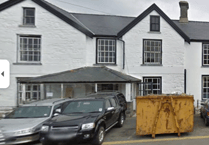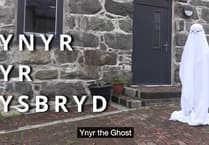Gwynedd Council cabinet will consider a recommendation to increase the council tax premium on second homes from 100 to 150 per cent.
Next Tuesday, 22 November, cabinet members will considering the proposal to increase the council tax premium from April 2023. It is also proposed that the premium should be kept at the current rate of 100 per cent on long-term vacant houses.
Finance cabinet member, Cllr Ioan Thomas, will also recommend that any additional money that comes into council’s coffers as a result of the change should be earmarked for tackling the homelessness crisis, as Gwynedd saw a 47 per cent increase in homelessness over the last two years.
In order to help members decide whether to increase the premium or not, a public consultation was held over 28 days during the months of September and October this year.
Comparing it to previous consultations, Cllr Thomas said “this exercise has triggered the largest number of responses with more than 7,300 people taking part”.
“I am grateful to all of them for taking advantage of this opportunity to voice their opinion.
“We have emphasised from the beginning that this exercise was not a referendum, but an opportunity to understand the opinions and experiences of a range of people. We have now had an opportunity to reflect on the results of the survey and I will ask the cabinet to recommend that the full council increase the premium from 100 per cent to 150 per cent for second homes and keep the premium at 100 per cent on empty houses.
“It is important to remember that this report being presented to the cabinet is one step in the process and that the full council will make the final decision regarding the council tax premium at its meeting in December.”
To date, the discussion regarding the council tax premium has largely focused on the impact that second homes have on the local housing market, leading to an increase in prices beyond what many Gwynedd residents can afford.
The council said it was clear the housing crisis in Gwynedd is also putting pressure on homelessness in the county. The lack of opportunities for people in rented houses to buy their first home in Gwynedd is intensifying pressure on the rental sector – in the private market and for social housing alike. As a result, there is a lack of rental housing for the council to accommodate the homeless, and they must therefore house them in hotels and temporary accommodation for very long periods, at an unsustainable cost.
Cllr Thomas said he was of the opinion the council should build on the good work of using any money that comes into the coffers through the premium to secure homes for local people.
“Money collected through the Premium so far has been earmarked specifically for the Gwynedd Council Housing Action Plan.
“Within this innovative scheme, the council has been able to go ahead with two Tŷ Gwynedd schemes which will provide affordable and suitable homes for up to 86 people within their communities in Bangor and Llŷn. We have also expanded the Welsh Government’s equity sharing scheme, which means that the offer is within reach of more people in Gwynedd.
“I am calling on my fellow members to expand on this by channelling any additional money that comes from raising the premium on second homes towards plans to prevent homelessness.
“During 2021/22, 1126 people contacted the council because they were homeless, which is an increase of 19 per cent compared to last year and an increase of 47 per cent on the year 2018/19. There is no doubt that the cost of living crisis has contributed greatly to this heart-breaking situation.
“Securing safe accommodation for people who have nowhere else to live means that the council is spending £6 million more this year alone on homelessness services and this is of course money that is not available to maintain other essential services. I therefore recommend that additional income from the premium is used to help bridge this gap.”
A second home is defined as a dwelling which is not a person’s only or main home and which is substantially furnished. This can include property that is used for short term holiday accommodation that is subject to council tax and does not qualify for statutory exemptions.
A long-term vacant property is defined as a property that has been vacant and largely unfurnished for a continuous period of at least one year. Since 1 April, 2021 owners of second homes and long-term vacant properties in Gwynedd pay a premium of 100 per cent, and before that 50 per cent between 1 April, 2018 and 31 March, 2021.
Following a change in the law earlier this year, Welsh councils have the right to increase the maximum Council Tax Premium on such houses by up to 300 per cent, from April 2023 onwards.
If Gwynedd Council decides to increase the premium at its meeting on 1 December, owners of second homes will see their tax bill rise from April 2023 onwards.
The report which will be before the cabinet on 22 November, which contains the full results of the consultation, is available on the Gwynedd Council website.

.jpeg?width=209&height=140&crop=209:145,smart&quality=75)



Comments
This article has no comments yet. Be the first to leave a comment.